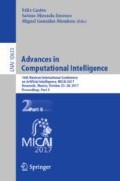Abstract
In this paper we present a new Russian paraphrase corpus derived from the news feed of the social network and conduct its primary analysis. Most media agencies post their news reports on their pages in social networks, and the headlines of the messages are often the same as those of the corresponding news articles from the official websites of the agencies. However, sometimes these pairs of headlines differ, and in such cases a headline from the social network can be considered a compression or a paraphrase of the original headline. In other words, such news feed from social networks is a rich resource of textual entailment, and, as it is shown in this paper, various linguistic phenomena, e.g., irony, presupposition and attention attracting markers. We collect the described pairs of headlines and construct the Russian social network news feed paraphrase corpus based on them. We test the paraphrase detection model trained on the other existing Russian paraphrase corpus, ParaPhraser.ru, collected from official news headlines only, against the constructed dataset, and explore its linguistic and pragmatic features.
Access this chapter
Tax calculation will be finalised at checkout
Purchases are for personal use only
Notes
- 1.
- 2.
There also exists another recently collected Turkish Paraphrase Corpus [7].
- 3.
- 4.
- 5.
- 6.
A full list of the markers is not provided in this paper because some of them are either not present in the selected sample of paraphrases or are currently not of our main interest.
- 7.
There are, of course, other irony modifiers in the corpus, apart from irony itself (e.g., sarcasm), but they are beyond the scope of this paper.
References
Agirre, E., Cer, D., Diab, M., Gonzalez-Agirre, A., Guo W.: SEM 2013 shared task: Semantic Textual Similarity. In: The Second Joint Conference on Lexical and Computational Semantics (2013)
Braslavski, P., Ustalov, D., Mukhin, M.: A spinning wheel for YARN: user interface for a crowdsourced thesaurus. In: Proceedings of the demonstrations at the 14th Conference of the European Chapter of the Association for Computational Linguistics, pp. 101–104. Gothenburg, Sweden (2014)
Chen, D.L., Dolan, W.B.: Collecting Highly Parallel Data for Paraphrase Evaluation. In: Proceedings of the 49th Annual Meeting of the Association for Computational Linguistics, pp. 190–200. Portland, Oregon, USA (2011)
Demir, S., El-Kahlout, l.D., Unal, E., Kaya, H.: Turkish paraphrase corpus. In: LREC 2012, pp. 4081–4091 (2012)
Dolan, W.B., Quirk, C., Brockett, C.: Unsupervised construction of large paraphrase corpora: exploiting massively parallel news sources. In: Proceedings of the 20th International Conference on Computational Linguistics, Geneva, Switzerland (2004)
Dzikovska, M.O., et al.: SemEval—2013 Task 7: the joint student response analysis and 8th recognizing textual entailment challenge. In: Proceedings of the 7th International Workshop on Semantic Evaluation (SemEval 2013), Atlanta, Georgia, USA. 13–14 June 2013
Eyecioglu, A., Keller, B.: Constructing a Turkish Corpus for Paraphrase Identification and Semantic Similarity. In: Gelbukh, A. (ed.) CICLing 2016. LNCS, vol. 9623, pp. 588–599. Springer, Cham (2018). https://doi.org/10.1007/978-3-319-75477-2_42
Fernando, S., Stevenson, M.: A semantic similarity approach to paraphrase detection. In: Proceedings of Computational Linguistics UK (CLUK 2008) 11th Annual Research Colloqium (2008)
Knight, K., Marcu, D.: Summarization beyond sentence extraction: a probabilistic approach to sentence compression. Artif. Intell. 139(1), 91–107 (2002)
McCarthy, P.M., McNamara, D.S.: The user-language paraphrase corpus. In: Cross-Disciplinary Advances in Applied Natural Language Processing: Issues and Approaches, pp. 73–89 (2008)
Pivovarova, L., Pronoza, E., Yagunova, E., Pronoza, A.: ParaPhraser: Russian Paraphrase Corpus and Shared Task. In: Filchenkov, A., Pivovarova, L., Žižka, J. (eds.) AINL 2017. CCIS, vol. 789, pp. 211–225. Springer, Cham (2018). https://doi.org/10.1007/978-3-319-71746-3_18
Pronoza, E., Yagunova, E., Pronoza, A.: Construction of a Russian Paraphrase Corpus: Unsupervised Paraphrase Extraction. In: Braslavski, P., Markov, I., Pardalos, P., Volkovich, Y., Ignatov, Dmitry I., Koltsov, S., Koltsova, O. (eds.) RuSSIR 2015. CCIS, vol. 573, pp. 146–157. Springer, Cham (2016). https://doi.org/10.1007/978-3-319-41718-9_8
Pronoza, E., Yagunova, E.: Low-Level Features for Paraphrase Identification. In: Sidorov, G., Galicia-Haro, Sofía N. (eds.) MICAI 2015. LNCS (LNAI), vol. 9413, pp. 59–71. Springer, Cham (2015). https://doi.org/10.1007/978-3-319-27060-9_5
Pronoza E., Yagunova E.: Comparison of sentence similarity measures for Russian paraphrase identification. In: Artificial Intelligence and Natural Language and Information Extraction, Social Media and Web Search FRUCT Conference (AINL-ISMW FRUCT), pp. 74–82 (2015)
Pronoza, E., Yagunova, E., Kochetkova, N.: Sentence Paraphrase Graphs: Classification Based on Predictive Models or Annotators’ Decisions? In: Sidorov, G., Herrera-Alcántara, O. (eds.) MICAI 2016. LNCS (LNAI), vol. 10061, pp. 41–52. Springer, Cham (2017). https://doi.org/10.1007/978-3-319-62434-1_4
Regneri, M., Wang, R., Pinkal, M.: Aligning predicate-argument structures for paraphrase fragment extraction. In: LREC 2014, pp. 4300–4307 (2014)
Sidorov, G., Gelbukh, A., Gómez-Adorno, H., Pinto, D.: Soft similarity and soft cosine measure: similarity of features in vector space model. Computación Sistemas 18(3), 491–504 (2014)
Wubben, S., van den Bosch, A., Krahmer, E., Marsi, E.: Clustering and matching headlines for automatic paraphrase acquisition. In: Proceedings of the 12th European Workshop on Natural Language Generation, pp. 122–125, Athens, Greece (2009)
Xu, W., Ritter, A., Grishman, R.: Gathering and generating paraphrases from twitter with application to normalization. In: Proceedings of the Sixth Workshop on Building and Using Comparable Corpora, pp. 121–128. Sofia, Bulgaria (2013)
Tikhonov, A.: Slovoobrazovatelnij slovar’ russkogo yazika v dvuh tomah: Ok 145000 Slov. Russkiy Yazik, Moscow (1985)
Author information
Authors and Affiliations
Corresponding authors
Editor information
Editors and Affiliations
Rights and permissions
Copyright information
© 2018 Springer Nature Switzerland AG
About this paper
Cite this paper
Pronoza, E., Yagunova, E., Pronoza, A. (2018). A New Corpus of the Russian Social Network News Feed Paraphrases: Corpus Construction and Linguistic Feature Analysis. In: Castro, F., Miranda-Jiménez, S., González-Mendoza, M. (eds) Advances in Computational Intelligence. MICAI 2017. Lecture Notes in Computer Science(), vol 10633. Springer, Cham. https://doi.org/10.1007/978-3-030-02840-4_11
Download citation
DOI: https://doi.org/10.1007/978-3-030-02840-4_11
Published:
Publisher Name: Springer, Cham
Print ISBN: 978-3-030-02839-8
Online ISBN: 978-3-030-02840-4
eBook Packages: Computer ScienceComputer Science (R0)

